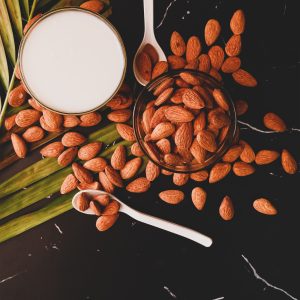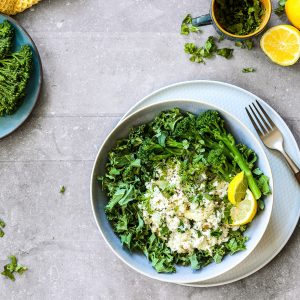SLIMMING OBJECTIVE : FAST OR EFFECTIVE DIET?
You want to lose weight but the diets you have tried so far have not worked? Then maybe it’s time to change your method!
Good news: I am against overly restrictive diets, I encourage my clients to change their eating habits and exercise, and this is the only method with which I have obtained lasting results.
The bad news is that my method does not allow for rapid weight loss, such as “losing 10 kilos in 1 week”. I prefer a slower weight loss but on the long term without a yo-yo effect.
So which slimming programme should you choose: those that recommend taking your time or those that promise immediate results?
What if I told you that it was possible to lose weight quickly and well, even allowing yourself a few deviations from time to time… The trick is to have a programme and to be well informed.
Nutrition programme
Sport Program
3 fundamentals for a successful diet
1- Motivation
The first prerequisite for losing weight is to be motivated. Whether it is about your diet or sport, you will always have the urge to flinch. At these times, remind yourself why you are doing this and what your motivation is. The first week can sometimes be difficult but you’ll see that the first kilo lost is encouraging!
2- Realistic goals
Set yourself goals and stick to them, BUT don’t set your goals too high – that’s the best way to lose motivation. A goal of losing 1 kilo per week is already very good! And you don’t need to get on the scales twice a day to look for progress. Once a week is enough, on a fixed day, for example every Sunday. And if the weight loss is less than you expected, don’t panic, it happens!
3- Go gradually
Take it one step at a time, don’t go from nothing to nothing overnight. The human body is sensitive and needs time to adapt; it does not like changes that are too sudden. This advice applies to both physical exercise and diet. If you don’t do any sport, don’t force yourself to do 1 hour a day every day.
Three types of body fat
There are three types of adult body fat: subcutaneous fat (between the skin and the abs), visceral fat (behind the abs, around the internal organs) and body fat depending on the sex of the individual. Each of these types requires a specific control strategy.
As the name suggests, visceral fat is mainly stored in the abdominal cavity, pushing the stomach forward. The more obese a person is, the more of this type of fat they have. And it is precisely the visceral fat that gives the individual an apple shape.
Cardio exercises are the most effective against this type of fat. All those who claim to have succeeded in losing weight considerably by running have mainly got rid of visceral fat. If you are able to pull in your stomach, you have little of this type of fat.
Subcutaneous fat accounts for about 40-60% of body fat. This is the fat you can feel under the skin. Aerobic exercise has less impact on the removal of subcutaneous fat. Apart from that, one should follow a low-calorie diet.
On average you can lose 400 to 700 g of this type of fat per week(4), which is equivalent to a deficit of 500 to 900 kcal per day. The body is unable to burn this fat faster. If you reduce your calorie intake even more, you will mainly lose muscle and not fat.
The third type of fat is the one that is defined by our gender. This fat is located on the lower abdomen in men, and on the hips and buttocks in women. The fight against this type of fat is possible if you only have a certain amount of subcutaneous fat.
Unfortunately, this fat is the most problematic, since the body uses it last, after getting rid of visceral and subcutaneous fat. The strategy to combat this fat requires complex solutions.
NUTRITION: CHANGE YOUR EATING HABITS
The best way to lose weight sustainably is by changing your eating habits. This will depend on where you are starting from and what you are currently eating. If you regularly drink soft drinks or alcohol and eat fast food, you can imagine that these are the first things to banish when trying to lose weight.
Generally speaking, the first thing to do is to reduce your consumption of sugars and fats, and eat more fruit and vegetables. It is necessary to know how to choose the least energetic foods, I advise you to learn to read labels and thus know the approximate nutritional value of common foods.
If you find it difficult to choose your food and understand the labels, I invite you to try the Yuka application. I did an article on it that you can check out, but in a few words it allows you to scan all your food products and get a quality index based on its nutritional properties and sugar/fat/salt content.
Foods to choose
One thing I have noticed with my clients is that they do not eat enough fish. Fish is very healthy, a good source of protein and generally low in fat. It’s definitely an ally in your diet, so try to eat fish 2 to 3 times a week. Yes, but fish is expensive; it’s true but there are always ways to find cheaper fish, go to Lidl for example, fish is much cheaper, or buy it frozen. Just avoid breaded fish
For meats, prefer lean meats and poultry. Remember that you don’t have to eat meat (or fish) at every meal, you can replace it with other sources of protein such as eggs, legumes (soya, lentils), quinoa, etc.
Vegetables: as much as you like! Vegetables and raw vegetables are recommended at every meal. Fruit is also highly recommended but limited because of its sugar content. Prefer low-sugar fruit.
Recommended cooking methods
Meat: grilled or roasted;
Fish: grilled, baked, microwaved or in foil;
Vegetables: steamed, stewed or microwaved
Seasoning and sauces
Add flavour to your meals but use the least fatty seasonings and sauces possible: you can use extra virgin olive oil, lemon, soy sauce, herbs and spices. Of course, avoid all ketchup/mayonnaise, and use as little butter as possible.
A simple tip for healthy eating is to avoid processed products, rich in food additives. This technique, used for example in the Paleo diet, consists of favouring fresh products and abandoning the “ready-made” foods that you find in the supermarket: packets of cakes, tins, ready-made meals, etc. Basically, anything that does not come from a farm or a small village. In short, anything that does not come directly from nature. In addition to being very healthy for the body, you will find many benefits other than weight loss: reduced risk of disease, better sleep, feeling of well-being, increased energy, etc.
If your budget allows it, choose organic farming, which is richer in nutrients and more nourishing than the processed and impoverished products of the food industry
Contrary to what we have always been told, dieting does not have to be synonymous with not eating enough. Even if some methods such as fasting recommend skipping a meal during the day, I think that as long as you only eat healthy food, there is no reason to deprive yourself and not eat enough (without excess either, it’s like everything else). You won’t get fat by eating green vegetables!
Reducing quantities too drastically and not reaching our daily calorie requirements presents a real risk of nutritional deficiencies. Our body needs to be supplied with nutrients (proteins, carbohydrates, fats, fibre, vitamins and minerals). That’s why it’s important to eat your 5 fruits and vegetables a day. Tip: don’t hesitate to eat your vegetables frozen if you don’t have the time to prepare them, contrary to some preconceived ideas they are very good! Don’t confuse frozen vegetables with frozen ready meals.
If you have vitamin and mineral deficiencies, you can make up for them with food supplements in the form of courses.
The risks of a quick diet
Even though we’re always eager to see results, the sustainable diet is the most effective. If you still want to try a magic diet to lose weight quickly, here are a few things that might (hopefully) make you not want to:
Guaranteed yo-yo effect: A diet that is too deprived conditions your metabolism for the next “attack”. As it is no longer used to receiving fats, at the first deviation or return to normal it will store more fats than before to face possible future periods of dieting. Result: you get fatter. When you see that you have gained weight again, you go back on a diet, and so on. You never get out of it.
With a drastic diet you will not provide your body with its daily needs in vitamins and minerals, which will result in increased fatigue and a decrease in your immune system (you will fall ill more often, etc.).
Deficiencies make your nails and hair more fragile.
Loss of muscle mass: Even if the aim is to burn fat quickly, your body will often burn muscle mass first. The result: you lose your shape (=flat buttocks). To avoid this, you need to eat a balanced diet rich in protein and do sports to build up muscle mass.
You are more prone to stress and psychological problems.
obviously, it is better to follow a training course which will be much more complete than my article
it has been proven that using a paid subscription increases the probability of succeeding in your diet by 45% (obviously if this subscription is effective), which is why I recommend this one which has been tested and approuved by me: bit.ly/control-your-health
have a nice day and hope that this article has very been very useful to you!
© 2021 Lara Romane










